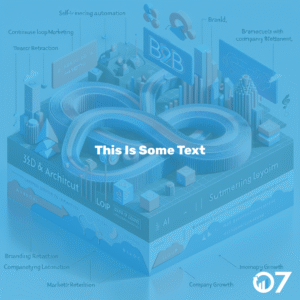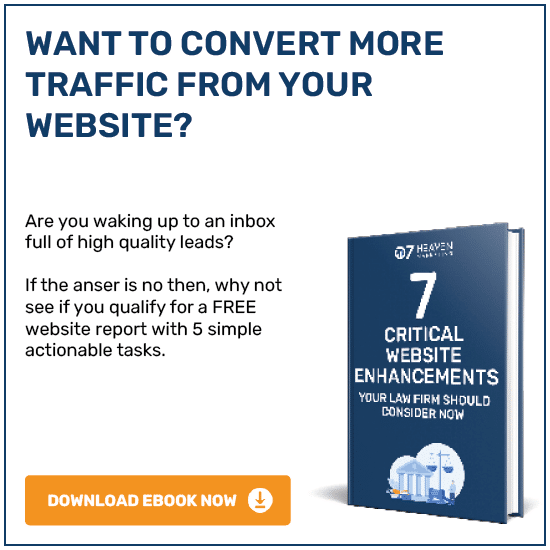What pages should a website have to guarantee the success of that site?
The best performing websites on the internet are usually complex and made up on many different pages. Because of this, it can be tricky identifying what pages must be included for your site to succeed. Therefore, we have created this blog to identify the 4 most important pages your website must have and how you can optimise these to out perform your competitors.
These include:
- Home Page
- About Us Page
- Contact Page
- Blog Pages
These highlighted pages are traditionally the most visited and therefore are vital in your efforts to wow and created an engaged audience.

1) HOME PAGE
When thinking about what pages should a website have, your website’s homepage is arguably the most important out of all the potential pages. Your homepage is often the first page that visitors will land on when arriving at your website. This emphasises the importance of this page, as it is your chance to make the best first impression you can.
Optimising your website’s home page:
Headlines
Capture your visitor’s attention by making a bold statement which holds the most important message in the centre of the page, so that it cannot be missed.
Sub-headings
These are handy little things. They allow you to offer your visitors key pieces of information of short snippets of information that gets the offering of your business across in seconds.
Navigation
Visitors will use your homepage as the hub that will connect them to other pages on your website. Ensuring clear navigation on the homepage is key in optimisation, as your visitors will not want to hang around to find something that proves tricky.
Calls to Action (CTA)
CTAs are a great tool to use for offering your visitors. A CTA is used to provoke an immediate response using a button. This can be useful for visitors who are looking for quick movement throughout your website.

2) ABOUT US PAGE
There are many reasons why your visitors may have sought out your about us page. It is often to answer some questions they may have in their mind about your business. Or if your visitors were not previously aware of your business before landing on your site, it is the perfect opportunity to tell them about yourself.
Optimising your about us page:
Provide the most relevant information
Visitors are on your about page for a reason, so make sure you are answering all the questions they may want answered by visiting the page in the first place. Do not make them work hard for the information. Provide clear and concise information without having to make the visitors scroll up and down for it.
Frequently Asked Questions (FQA)
Frequently asked questions are an excellent way of informing your visitors of questions that you are often asked. It creates and easy and convenient way increasing their knowledge pool and understanding around your business and industry. FQA’s are also a brilliant method in improving the user experience of your website as you are making information easily accessible.
Calls to Action (CTA)
Web users nowadays do not just want to be given a load of text to read, they want a deeper level of interaction and engagement. CTAs are a useful way of offering this engagement to the visitors of your site. For example, make the readers feel involved in the content, such as allowing them to download your content or offering them links to further information they may be interested in if they enjoyed what they have read so far.
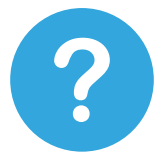
3) CONTACT US PAGE
A contact us page is an important component of your company website. Visitors that land on your website are potential customers moving forwards. If they like what they see they may want to get in contact with your company. You want to make this as easy as possible. Therefore, you want to make sure this page is easy to navigate and simple. A contact page also provides the benefit of authenticating your busines and products and services, increasing the trust of a visitor.
Optimising your contact us page:
Above the Fold
Make sure the contact information is above the fold of the screen. By this, it is meant that the content should appear in the top half of the screen so that visitors do not have to scroll down for the information or get lost in locating it. Instead, it will be displayed right in front of them with minimal effort from their part.
Contact Information and Contact Form
It is often said that it is better to provide your visitors with both a contact form and the ordinary contact information for your company. This is because it offers visitors with an easy form to fill out if they want to contact you, yet if they do not trust that filling out the contact form will get them the interaction they wish for, offering a telephone number or email address solves this issue and allows them to contact you directly also. Hence, both preferences are catered for.
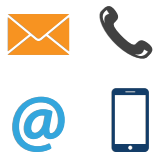
4) BLOG PAGES
Blogs are a great tool for engaging with web users. It is a useful way of teaching your visitors more about your company, the industry you work within and what services and products you may provide, with more of a story behind it. Web users like to feel engaged and involved in the content they are reading, which is why blogs are a great way to achieve this.
Optimising your blog page:
Be clear and organised with your information
Organisation is key when displaying your blog to your visitors. They will often want to read the most recent and up to date pieces that you have written, so it is often best to order the blogs in date order, with the newest first. It is also handy to put your blogs into categories so that visitors can identify the topic that they want to read from. ‘Most popular’ or ‘most read’ categories may also be useful, so users know they are being pointed in the right direction of the best content.
Calls to Action (CTA)
Once again, CTAs work as tools to engage the readers even further. Blogs are the perfect place to utilise CTAs as it allows you to send the reader to content that would be perfect for them. For example, if a web user has landed on your blog organically as it came up as a result in a search engine, provide a homepage CTA so that if the user has enjoyed what they have read, they can easily locate your company homepage without having to spend too much time exploring their navigation path on the page.
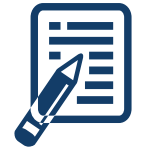
So, What pages should a website have?
So, now you know the 4 most important pages your company should have on its website. Hopefully, our advice on how to optimise these pages will help you produce high performing sites that attract and convert a lot of visitors.
If you can think of other pages that seem important and want to optimise them to perform well, ask yourself these two questions:
- 1) What is the user looking for?
(where did they come from and what do they need to know?)
- 2) What is my goal for the user?
(what do you want the user to learn from being on this page?)
For further insights and guidance, we invite you to explore our blog at 07hm.co.uk/blog. Here, you’ll find a wealth of information tailored to the needs and challenges of SMEs navigating the digital landscape. Additionally, if you have specific questions or need personalised advice, don’t hesitate to reach out to us via email at info@07hm.co.uk or telephone on 01702 410663.





